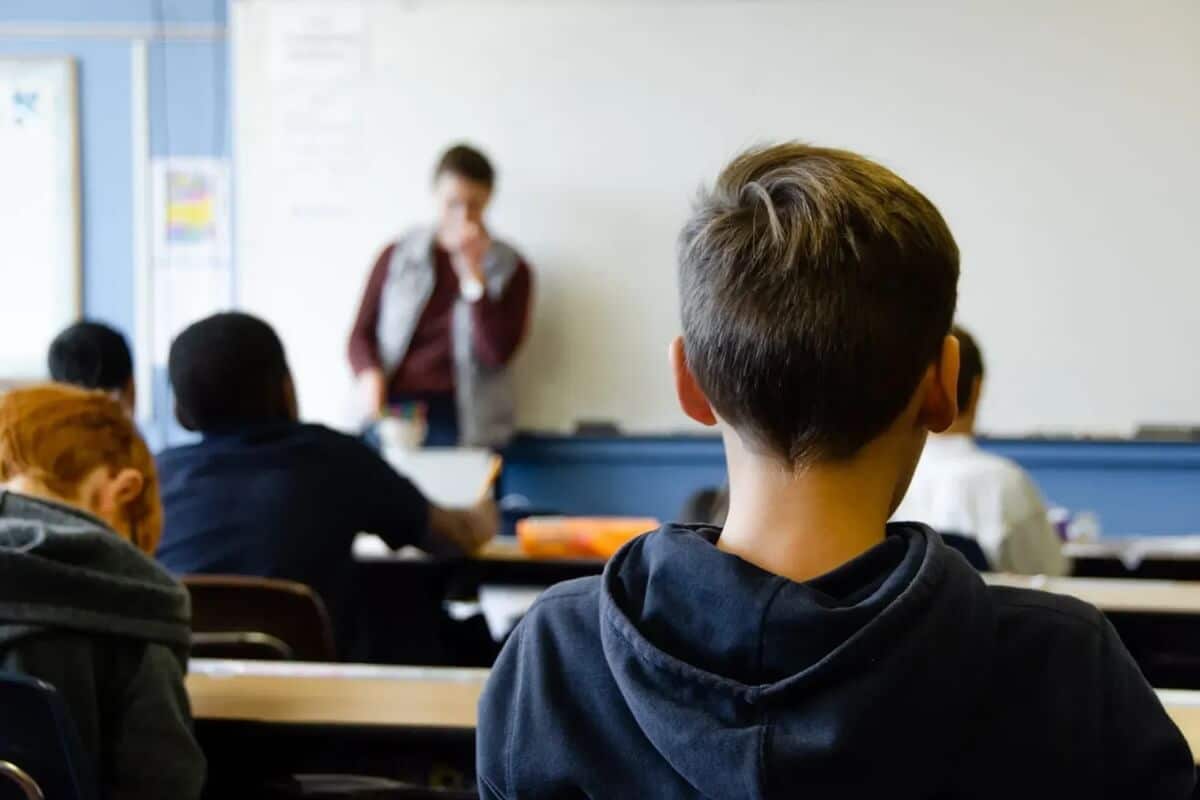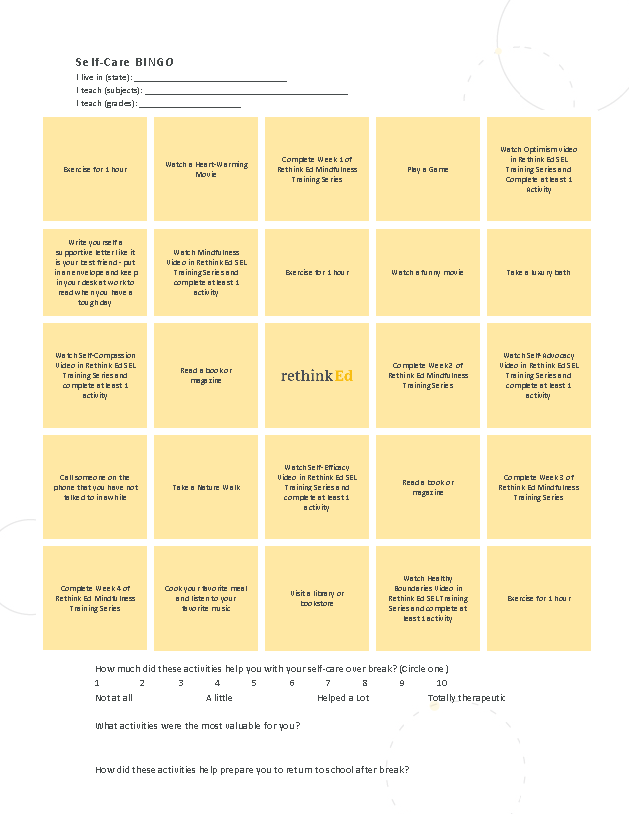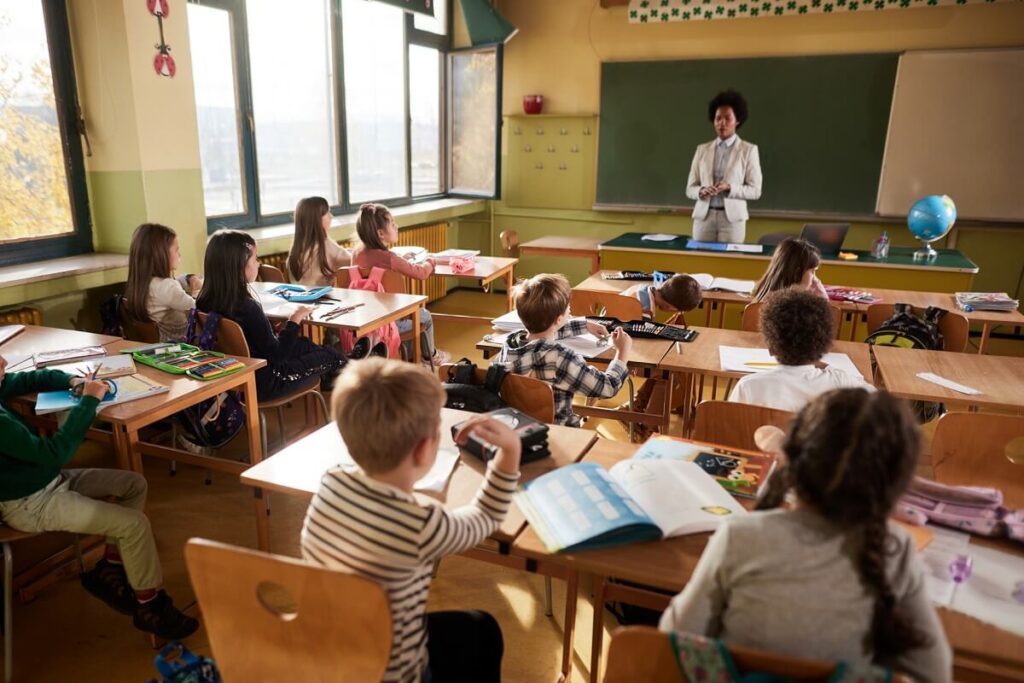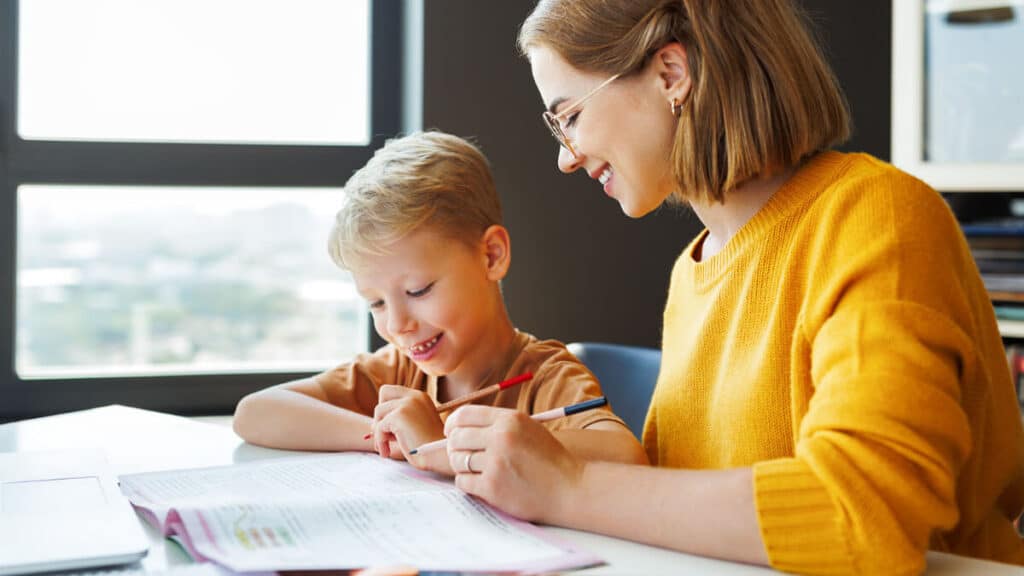Many students experience trauma and teachers are often at the forefront for supporting them and helping them get the support that they need. Trauma impacts students’ academic performance and behavior at school, but it also significantly affects the teachers and other school staff. Sometimes, it is unclear what to do, sometimes it is not clear that the student is going through a difficult time. And often, educators can become overwhelmed and over-involved to the point that it can take over their professional and personal lives.
Educators care about the well-being of their students and often wear the weight of their issues on their own shoulders by experiencing confusion, fear, anger, sadness, and anxiety about their students’ situations. While having empathy and understanding for your students is important, too much can lead to lack of sleep, high anxiety and stress, exhaustion, and over time may even result in lack of motivation, hopelessness, and decreased job satisfaction. This “cost of caring1 ” is called compassion fatigue, and most educators have faced it at some point in their careers
You Are Not Alone
Most educators have had students dealing with trauma2 , as about ½ of students in the U.S. have experienced at least some kind of trauma. Cumulative stress can result in mild to severe symptoms of compassion fatigue, including increased cynicism, stress, physical exhaustion, sleep problems, substance use, and other problems3 . In addition, it can decrease your sense of control, ability to feel empathy, motivation, intimacy, sense of professional accomplishment, and feelings of safety. It is typical to want to help your students, and it is normal to not know how much is enough or how much is too much.
In a study in 2018 with teachers, principals, and district administrators, teachers reported that 67% of their student’s experienced trauma, and principals and district administrators said that 75% of students experienced trauma. Trauma has been on the rise for students dealing with abuse, substance use, bullying, violence, and mental health issues in their families, at school, and in their communities.
Teachers also experience their own trauma, and sometimes, a students’ trauma can trigger a bad memory or bad experience of your own. This can lead to flashbacks, nightmares, difficulty sleeping, problems with focus, and anxiety. This may make it even harder for you to keep the safe and appropriate emotional boundaries between you and your student. But your needs are just as important as the needs of your students. We also have trauma, life challenges, fear, and anxiety in our lives at times. It is not always easy to put aside our own emotional needs to help students, but when we put aside our own self-care, this can exacerbate compassion fatigue and make matters worse for students and us.
The Impact of COVID-19
While trauma rates have been growing, the COVID-19 pandemic resulted in at least some degree of trauma for all students with school closures, social isolation, lack of support from peers and adults in schools, schedule/routine changes, coping with distractions and problems in the home, and over-indulgence in social media. Some students suffered more greatly with increased abuse, violence, exposure to substance abuse or mental health issues, illness and hospitalizations, death of loved ones, neglect, and decreased access to food, shelter, and safety.
In addition, educators have also experienced increased trauma in their own lives outside of the school environment with their own family variables, their own mental and physical health, and possible illness or hospitalization, and increased isolation from peers and students and a professional working environment. Like students, many teachers also had to deal with death in their families or worsened abuse, substance use, or other family variables.
What was already a stressful environment in schools has become a national crisis. School violence is on the rise, students’ academic and emotional progress have worsened in many cases, and mental health has become an emergency. With more trauma for both students and teachers, more teachers have reached a boiling point and are exiting education. School administrators and counselors may have the best intentions to help teachers but offering shorter meetings, working less hours, or leaving encouraging notes is not a sufficient solution for compassion fatigue5 . A much more systematic and direct approach is needed, which includes helping educators to identify their symptoms, get access to needed resources, and get them involved in school climate change.
Getting Back on Track
Asking educators to “be resilient” may actually be harmful when dealing with compassion fatigue as it implies that they need to keep on going and pull themselves together5 . A better approach is to use language that clearly indicates they are not alone, that it is okay to feel the way that they are feeling and focus on their own mental health and self-care. Additionally, fellow staff and administrators should reinforce positive choices to focus on mental health and self-care. For instance, having open discussions about compassion fatigue and self-healing may facilitate recovery for educators.
For most teachers and other school staff, there is pressure to get their students back on track academically, and now, to address their social-emotional and mental health needs. But the old saying “put your mask on first before helping others” is not cliché here. It is the most important thing that you can do for your students, your school, your colleagues, your family, your friends, your community, and yourself. The weekend is a short respite that provides many distractions from the school world but can also involve giving too much of yourself to others.
You must take some time, at least 15-20 minutes every day, to nurture your own needs. If you are experiencing extreme compassion fatigue and need help, this is an excellent time to seek out professional or personal support and talk to someone. Even those who feel that you are doing okay are probably looking forward to this weekend, and you should be!
There are many things that we can do to work on our own self-care, mental health, and compassion fatigue. These activities will build your confidence, give you some peace, help you reflect and grow, and hopefully make you feel more connected with yourself and others. Some ideas for weekend self-care:
- Get outside – fresh air invigorates the senses and helps improve mindfulness – go for a nature walk, build a snowman (or sandcastle), walk your dog or kids around the neighborhood, window shop
- Exercise – any exercise helps decrease stress – walk, run, play sports, swim, ski, sled, skate, play with your pets or kids, yoga, dance, go to the gym
- Learn and grow – read, draw, do personal research (not school related), go to a museum, see a live performance, get to know someone new, do mindfulness activities, watch videos on Social Emotional Learning (SEL) and apply them to your own life (not students, at least not right now)
- Social connections – watch movies together, play games, have meals, all the usual holiday activities – really try to connect with writing letters, making phone calls, planning social time with people who provide support (e.g., coffee date or shopping together)
Weekend Self-Care BINGO
If you want a fun challenge to really indulge in yourself over the weekend, this game is for you. This is a flexible and fun challenge and there are no real rules. You can use this for ideas for your self-care and do nothing else, or you can go for a horizontal, vertical, or diagonal BINGO. You can go for a black-out BINGO and try to complete them all. Whatever you do, we hope that is helps you with your self-compassion and helps you to feel more energized, focused, and motivated. To play, follow these instructions:
- Print BINGO sheet from Rethink Ed Platform (If you do not have access to the Rethink Ed platform, you can replace these activities by looking up the topics online and learning about them)
- Complete the activities you want and track your progress
- Reflect on how each activity helps you get back on track for you own self-development
- If you would like to share your progress:
- Take a picture of your final BINGO sheet (does not matter how much you did)
- E-mail your BINGO sheet to jasmine.howard@rethinked.com by January
15, 2022 - Your personal information and your BINGO sheet will not be shared with anyone unless we receive your written consent to do so. By submitting, you agree to share data only
- Two people will be randomly drawn to receive a $25 Amazon gift card – it does not matter what you put on your BINGO sheet – the drawing will be from your email only
Resources
- Figley, C.R. (Ed). (1995) Compassion Fatigue: Coping with secondary traumatic stress disorder in those who treat the traumatized. New York: Brunner/Mazel.
- National Survey of Children’s Health (2011-2012)
- Harvard Graduate School of Education (2018)
- Elliott, K.W., Elliott, J.K., & Spears, S.G. (2018). Teaching on empty.
- Ewing, S. (2021). Compassion fatigue is overwhelming educators during the pandemic













